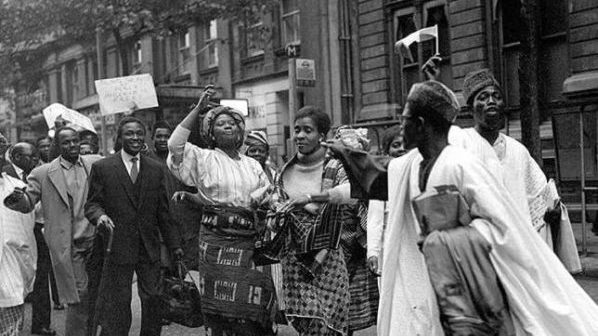It was a bright Saturday morning, at least because of the excitements of Nigerians who, adorned in very colourful attire, throng to the Tafawa Balewa Square, Lagos and watched with every sense of pride as the Union Jack, the British flag was lowered and replaced with the Nigerian flag. It was Independence Day. It was October 1, 1960.

As the verse of the National Anthem illustrates—the labour of our heroes past—it was the culmination of years of work by the founding fathers and heroes of Nigeria’s independence. The likes of Sir Herbert MacCauley, Nnamdi Azikiwe, Sir Ahmadu Bello, Anthony Enahoro, Obafemi Awolowo, among many others.
Nigeria’s History
Historically, on January 1, 1900, the British had revoked the charter is granted to the Royal Niger Company (now United African Company, UAC). As a result, Britain assumed direct control of the area now called Nigeria. As a reminder, the name which is a derivative from the ‘Niger Area’ was given by Lord Frederick Lugard then-fiancée (later wife), Flora Shaw. This act by the British Colonial Office in London set the tone for a series of important events in the history of Nigeria. First, on February 28, 1906, the Crown Colony of Lagos (annexed in 1861) was amalgamed with the Southern Protectorate and officially renamed Colony and Protectorate of Southern Nigeria. In 1914, Southern Nigeria was joined with Northern Nigeria to form the single colony of Nigeria. This was the biggest merger of over 250 ethnic nationalities and Nigeria became the largest of British territory. However, in 1939, the Governor-General of Nigeria, Bernard Bourdillion divided Nigeria into three regions—Northern (was untouched), Western and Eastern regions—for administrative reasons. This regional structure remained until 1963 when the Mid-Western region (headed by Dennis Osadebey) was created by the Republican Constitution of 1963.
From 1900-1960, the Colonial Administration in Nigeria introduced a series of policies including those that ushered in political changes like Constitutional Development—Clifford Constitution of 1922, Richard Constitution of 1946, MacPherson Constitution of 1951, Lyttleton Constitution of 1954 and the Independence Constitution of 1960. While the 1922 Clifford Constitution was the genesis of the election of representative in Nigeria, nationalist protests and activities flourished within this period too.
Fortunately, with independence in 1960, the power to determine Nigeria’s future now rested on her leaders and people. For fifty-nine years, both civilian and military administrations have governed the country determining the course of her destiny. The military interregnums landed Nigeria in the darkest period of her history, the Nigeria/Biafra War.
The following are the political leaders that have been in charge of Nigeria since 1960:
- Tafawa Balewa (Prime Minister) and Nnamdi Azikiwe (President)—1960-January 15, 1966.
- JTU Aguiyi-Ironsi, Military Head of State—January 15, 1966-July 29, 1966
- Yakubu Gowon, Military Head of State—July 29, 1966-July 29, 1976
- Murtala Muhammed, Military Head of State—July 29, 1976-February 13, 1976
- Olusegun Obasanjo, Military Head of State—February 13, 1976-October 1, 1979
- Shehu Shagari, First Executive President—October 1, 1979-October 31, 1983
- Muhammadu Buhari, Military Head of State—December 31, 1983- August 27, 1985
- Ibrahim B. Babangida, Military Head of State—August 27, 1985-August 26, 1993
- Ernest Shonekan, Interim Government—August 26, 1993-November 17, 1993
- Sani Abacha, Military Head of State—November 17, 1993-June 8, 1998
- Abdulsalam Abubakar, Military Head of State—June 8, 1998-May 29, 1999
- Olusegun Obasanjo, Civilian President—May 29, 1999-May 29-2007
- Umar Musa Yar’Adua, Civilian President—May 29, 2007-May 5, 2010
- Goodluck Jonathan, Civilian President—May 5, 2010-May 29, 2015
- Muhammadu Buhari, Civilian President—May 29, 2015-Present
As a living organism, Nigeria has grown, and improvements have been made though challenges abound. These challenges are common to nation-building and have been surmounted time and again.
Source: Obaro Ikime, Groundwork of Nigerian History. Ibadan: Heinemann Educational Books, 1980.
Featured image source: The Guardian

